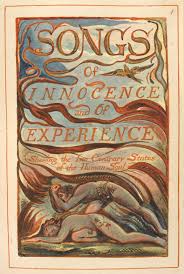William Blake and the Angel
Listen to the Recess! Clip
| Author | John Cech |
| Air Date | 11/27/2002 |

William Blake and the Angel Transcript
When he was ten years old, William Blake (who was born on November 28th in 1757) saw an angel in a tree outside his family’s house in London. Though no one believed him at the time, he never forgot the vision, and it colored the rest of his life.
Until then, his own childhood was ordinary and bleak. And though he had natural artistic talent, there was really nothing that would have signaled the fact that he would become one of the greatest poets in the English language. Except for that angel.
Blake’s father was a tradesman, but he recognized Blake’s early gifts and apprenticed his son to an engraver where he would get the lessons in art that Blake’s father could not afford to provide. But Blake’s energies were soon taking him in unique directions, away from the traditional subjects that he was asked to engrave. And he began writing poetry.
In 1789 he published his now-famous cycle of poems, Songs of Innocence, that begins:
Piping down the valleys wild
Piping songs of pleasant glee
On a cloud I saw a child
And he laughing said to me
Pipe a song about a Lamb
So I piped with merry cheer
Piper pipe that song again
So I piped, he wept to hear.
There’s that angel again, the child in the cloud, the source of inspiration, the force that changes your life. In this small masterpiece of a book, Blake wrote poems about the suffering of children — like the child chimney sweepers lost in England’s grimy flues — and about children playing on village greens, children who remain innocent, forgiving, and accepting despite the visible horrors going on around them and inflicted upon them by the adult world. In the companion volume that followed a few years later, Songs of Experience, Blake’s children have gained a hard-won wisdom and they voice their outraged contempt for the adults who have consigned them to back-breaking labor and indifference.
Blake claimed that he was writing his Songs that “every child may joy to hear.” But few, if any, children ever saw these poems in Blake’s own lifetime. Blake and his wife, Caroline, printed, colored, and bound these remarkable books themselves for a select few subscribers. Yet they were then and have remained the most powerful and beautiful children’s books ever produced.
Blake died in 1827, still in poverty, unrecognized, consigned to a public grave. But the angel that he heard fills his pages.